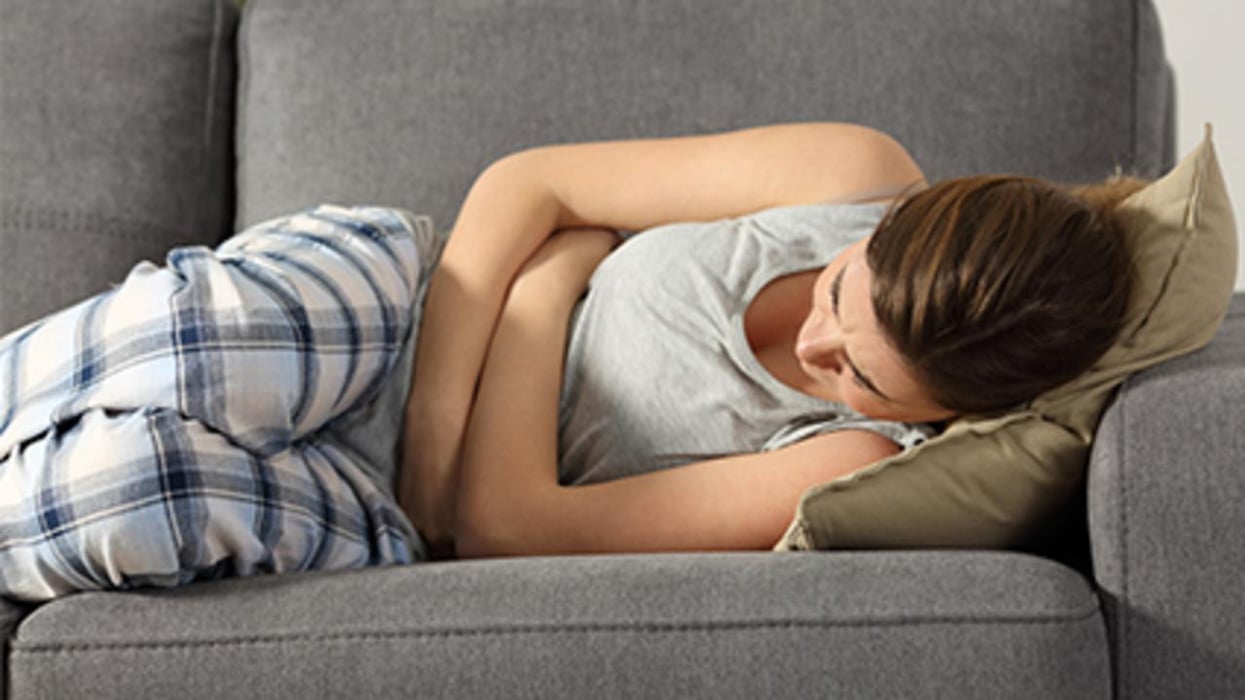Getting Relief When You Have Menstrual Cramps

TUESDAY, May 30, 2023 (HealthDay News) -- Menstrual cramps can make it hard to be at your best, and millions of women struggle with managing the pain and bloating that often comes with their periods.
A common symptom of menstruation, cramping affects over half of women who have a period, according to the U.S. Department of Health and Human Services' Office on Women’s Health (OWH). They can be mild to severe and cause feelings of pain and heaviness in your stomach region.
Here, experts explore the different causes of menstrual cramps and offer tips for finding relief from them using the best self-care strategies and menstrual cramp medications available.
What causes menstrual cramps?
Menstrual cramps are formally part of dysmenorrhea, which is pain that’s caused by periods. According to the OWH, they have two main causes.
Primary dysmenorrhea happens because your uterus contracts during your monthly menstrual cycle to shed the uterine lining. Menstrual cramps caused by uterine contractions usually become less severe with age.
“The primary [dysmenorrhea], we think, is due to a release of a chemical that happens during menses [menstruation] called prostaglandin,” explained Dr. Ron Salzetti, department chair of obstetrics & gynecology at Scripps Clinic in San Diego, Calif. “And that chemical causes the uterine muscle to cramp harder and kind of decreases your pain tolerance during the menses.”
Secondary dysmenorrhea is caused by another health issue, such as endometriosis, ovarian cysts or uterine fibroids. The pain tends to last longer than it does with primary dysmenorrhea. It’s also more likely to worsen with age, according to OWH.
How to get menstrual cramp relief
Self-care tips
“The first stage when we first see somebody having painful periods is to start with simple things,” said Salzetti. “Heat on the lower abdomen during the menses, like a heating pad or a hot water bottle, has been shown in a number of studies to help as much as some of the anti-inflammatory medications.”
He also noted that exercise is one of the best ways to find menstrual cramp relief. “Exercise releases endorphins, which help patients better tolerate pain,” he explained.
According to Houston Methodist, it’s also beneficial to reduce stress levels to ease menstrual pain, in part because stress lowers your ability to tolerate pain. Activities like meditation, yoga, deep breathing and speaking with a counselor can help you to de-stress your body and mind.
Eating a healthy diet full of vitamins and minerals like B1 and magnesium has also shown promise for reducing cramping. This includes foods such as beans, nuts, chickpeas, spinach, oranges, cauliflower, avocados, whole grains and asparagus.
The best medicine for menstrual cramps
The OWH notes that over-the-counter nonsteroidal anti-inflammatory drugs (NSAIDs) are some of the best medicines for relieving period pain. They include ibuprofen, naproxen and aspirin.
According to Scripps Health, ibuprofen tends to irritate the stomach less than aspirin, which may make it the better option for menstrual cramp relief.
“The ibuprofen and the naproxen actually cut down the inflammation and help with those prostaglandins. They block those prostaglandins we were talking about earlier that increase the cramps and pain,” Salzetti advised.
In terms of prescription medications for menstrual pain and cramping, the OWH and Women’s Health Concern say that your doctor may prescribe:
- Hormonal birth control to help reduce pain during your period
- Certain non-hormonal drugs called tranexamic acid or mefenamic acid
- Painkillers to be taken as soon as your period begins
“We have stronger versions than the over-the-counter versions of the anti-inflammatories. It's often our first line,” Salzetti noted. “Second line is to consider hormonal contraception, such as birth control pills, patches or rings, or even sometimes IUDs will help. All those work by decreasing the amount of menstrual blood that's produced, which will help then with the cramps.”
He said that if a more serious health condition is found to be the cause of cramping, there are medications to help with those as well, including a newer medication called elagolix [Orilissa] that “basically sort of blocks some of the effect of the signals to the ovaries. So…if there is endometriosis or fibroids there, it will shrink them.”
Salzetti also emphasized that women should seek medical attention for severe cramps.
“One of the things I just want patients to know is severe pain with periods is not a normal condition and they should try the basics on their own like heat or exercise or ibuprofen, but if those aren't working, they should see a health care provider because it could indicate a more serious problem,” Salzetti said. “A lot of women suffer from this and never seek care for it. And we have some good options that are short of surgery to help with this.”
SOURCE: Ron Salzetti, MD, department chair, obstetrics & gynecology, Scripps Clinic, San Diego, Calif.Related Posts
Head Injury Linked to Increase in Incident Ischemic Stroke
FRIDAY, Sept. 15, 2023 (HealthDay News) -- Head injury is associated with an...
AHA News: Report Highlights Lack of Medical Worker Diversity – And How to Fix That
THURSDAY, Jan. 5, 2023 (American Heart Association News) -- Racial and ethnic...
Los estadounidenses jóvenes siguen queriendo el mismo número de hijos, pero no ahora mismo
MARTES, 17 de enero de 2023 (HealthDay News) -- Cuando las tasas de natalidad se...
Factors ID’d in Time to Breast Biopsy by Race, Ethnicity
FRIDAY, June 24, 2022 (HealthDay News) -- For women with abnormal results on...
